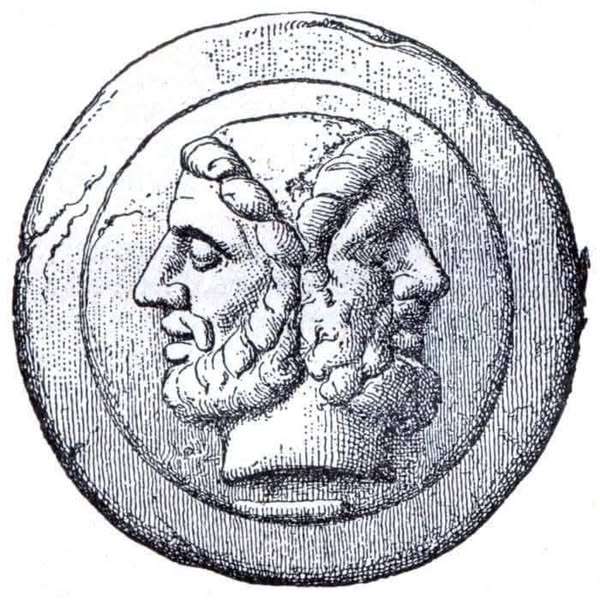Our reporter
As we ring in the New Year tonight, it’s worth reflecting on the deeper historical and spiritual roots of this annual celebration, which traces back to Roman traditions. Central to this is the figure of Janus, the two-faced Roman god whose influence has shaped the calendar we use today.
Janus, the god of time, doorways, transitions, and beginnings, is the namesake of January, the first month of the year. His two faces are said to look simultaneously into the past and the future, symbolising the cyclical nature of time.

This duality has been central to various ancient traditions, from Roman rituals to the mythologies of the Sumerians and Hindus, where gods with multiple faces symbolise the divine ability to see across space and time.
The origins of our current calendar date back to 1582, when the Jesuit priest Christopher Clavius, in collaboration with Pope Gregory XIII, introduced the Gregorian calendar. This system, which replaced the Julian calendar, included the establishment of the 1st of January as the official start of the year—marking a new beginning. This change, however, was far from simple, as it tied into a series of religious, political, and philosophical shifts, including the creation of new holy days like the Catholic celebration of the circumcision of Christ on New Year’s Day.
Interestingly, the period surrounding New Year’s is also linked to a sense of renewal and purification in various cultures. The ancient Romans would make sacrifices to Janus on New Year’s Day, typically offering a white steer, as well as performing lavish rituals marking the beginning of the new year.
During times of war, the Gates of Janus would be left open, while in times of peace, they would be closed—symbolising the Pax Romana, a 200-year period of relative peace that was heralded by Emperor Augustus after his victory over Mark Antony.
But the spiritual significance of the New Year extends beyond the Roman Empire. In Norse mythology, the Yule season was marked by bonfires, feasting, and the paying of respects to gods like Odin, Thor, and Freya.
The ancient Jews observed Rosh Hashanah with symbolic meals, including a head of sheep, while the Greeks celebrated with a ritual offering of olive branches.
In an interesting twist, there are those who believe that the true New Year’s celebration originally occurred on April 1st. According to some, the 1st of April, known today as April Fool’s Day, was once the actual start of the new year, before the calendar reforms instituted by the Jesuits.
The shift from April 1st to January 1st, they argue, was part of a larger strategy of spiritual and social control, turning the people into “fools” for accepting the new date without question.
The concept of Janus as a god of transitions extends beyond the calendar. According to Helena Blavatsky, founder of the Theosophical Society, Janus is a symbol of initiation into esoteric wisdom, linked to the “keys of heaven” and the opening of spiritual doors. In Christian tradition, Janus is often identified with Saint Peter, who, like Janus, is depicted holding keys—symbolising authority over both heaven and earth.
As we approach the dawn of a new year, it’s a time for reflection on the ancient rites and gods that have shaped our perception of time and spiritual progress. Whether we see these celebrations as purely secular or deeply symbolic, they carry with them layers of history that connect us to the ancient world—a world where gods like Janus governed not only the heavens but also the cycles of human existence.
In the end, New Year’s Eve is not just about fireworks and festivities, but about honouring the cycles of time, embracing new beginnings, and contemplating the mysteries that continue to shape our understanding of the world. So, as we step into this new year, let us pause to consider the hidden meanings of the rituals we observe, and reflect on the ancient wisdom that underpins them.
Get a premium automobile insurance coverage for your vehicle for as low as #15000 only and claim up to #3,000,000 in damages @Zenith Insurance To signup: WhatsApp/Call: +2349028313757







